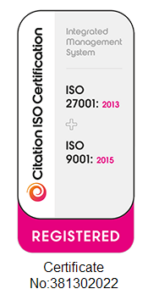Open Audience Perspective
What a year it has been! The world of travel, international and national conferences, medical education sessions and even team meetings was upended for everyone.
For meetings organisers and engagement experts, it meant a 360-degree rethink of everything we do. We’re proud of all we have achieved at Open Audience, how quickly we were able to pivot to the new world of virtual events and how we have helped our growing list of clients continue to meet, discuss and engage.
We know that for the next 6 months at least – and likely beyond – virtual will remain the norm. As we close out a difficult year, we wanted to share what it has taught us.
Tackling Challenges
1. Adapting to New Technology
Caroline: First of all, we needed make sure we understood the breadth of technology options out there, determine the most appropriate, and then match these with different client needs.
Christine: We learned that technology or platform offerings didn’t always provide clients with everything they needed, so we had to bring together two or three. This meant finding ways to ensure these technologies and platforms worked together seamlessly so the meetings were as professional and easy to navigate as possible for the delegates.
Nicola: I think my biggest challenge has been quickly acquiring new technological skills.
Joe: I agree, switching to working completely virtually was a challenge, as we had to quickly become proficient in new methods of virtual communication.
Richard: We’re proud that our training programmes have ensured we can continue to provide the best service to our clients even when using new technology.
2. Helping Clients Transition to Virtual Events
Pedro: As advisors to companies in the interactivity sphere, sometimes we needed to help clients to understand what they had to do differently in the virtual environment, such as making the experience more like a classroom and more engaging.
Richard: Managing expectations of what is and is not possible within the different style of virtual events has taken time. Organisers need to know the answer to questions such as, is it a simple meeting? Is it a webinar? Do they want custom backgrounds? All this contributes to different ways a virtual event can take place and what tech should be used.
Jason: One of the big struggles has been trying to convince others that virtual events cannot be run in the same way as live events. The same discipline applies, and to some extent the processes are similar, but to succeed we have had to convince people to do some things differently. Again, it’s that fear factor of doing something new when there’s so much at stake.
3. Unique Requirements of Virtual Events
Isabel: The biggest challenge with virtual events is the increased amount of pre-event preparation that is needed. For example, without being able to manage aspects such as speaker briefings and rehearsals onsite it is often necessary to spend time training speakers to use the technology. However, when events are properly planned, and speakers are prepared (some element of pre-recording can be beneficial here too) the content and final event can be even stronger.
Caroline: Yes, when you’re working remotely you don’t have the luxury of those quick conversations that you would onsite. You need to do a mental check of all involved – participants, clients, presenters, stakeholders, moderators and remote team members – to ensure you have briefed and discussed every single element. You can’t assume that there is common understanding as everyone is operating in uncharted waters!
Nicole: At first, we also faced uncertainty about the future. When we started to shift to more virtual events, we didn’t know how long this process would take, and whether planned events would be postponed, cancelled, or reformatted.
Leslie: We’ve definitely seen an increased workload – just the sheer volume of requests, formats and expectations we’ve faced has been a challenge – but we are proud to have fully delivered!
Focusing on Positives
1. Changing Events for the Better
Pedro: The transition to virtual events has interrupted the tendency for companies to keep doing the same thing year in and year out. That has shaken up the approach to meetings and brought renewed interest from participants.
Nicola: It’s heartening that the work the team has done has enabled a wider audience to access meetings than before, because now organisations can reach out to people who didn’t have the time or resources to attend in person.
Richard: Yes, it’s been encouraging to see that the same messages can be delivered within a virtual environment with the added bonus of having a wider audience reach. Also, enabling clients and delegates to see each other again, even virtually, is very rewarding.
Christine: While 2020 has been a very tough year for the conference and events industry, our organisation has been able to grow, learn and adapt to the changing circumstances. I am sure we will be able to use this knowledge to improve hybrid and virtual conferences and events going forward.
2. Developing Our Skills
Nicole: I’ve learned new skills, become proficient in new tools, and adapted to a new virtual world with all of its obstacles and opportunities!
Jason: I’ve really enjoyed running events with hundreds of attendees, taking ownership of the style and flow of the meeting/webinar and coaching others to get the best results. It’s a lot of responsibility and when I’m in the zone it’s a great buzz!
Isabel: Everyone I have worked with has been eager to interact with others in whatever way they can and make the best of the situation, which is encouraging and heart-warming. Our team has learned a lot, grown our skills and adapted to the situation, our clients have been brave and open to creative solutions, and speakers and delegates have been very welcoming of virtual meetings and events and willing to participate as much as possible.
3. Delighting Our Clients
Joe: It’s been really rewarding to receive such fantastic feedback from delegates and clients alike.
Pedro: Additionally, because of this new environment we are listened to more and companies are taking our advice on board more often. We are increasingly involved at an earlier stage of the planning process, to make events as interactive and engaging as possible.
Leslie: What has really made me proud is how well we’ve managed to deliver, often at short notice, facing technical challenges and coping with different formats, yet to very high standards.
Caroline: Being able to find, offer, create and deliver multiple solutions to meet differing needs has been rewarding. Personally, I’m grateful to my colleagues for retaining their sense of humour, continuing to go the extra mile, and maintaining their commitment to delivering excellence. We remain as connected as a team today (if not more so) while working remotely, as we were at the beginning of this journey.
Celebrating the Future
Every organisation and individual will have been through upheaval this past year, but there are many positives to take away from our experiences, and we look forward to serving our clients in new and exciting ways in 2021.
Open Audience is an audience engagement consultancy that specialises in making life sciences meetings more engaging with more positive, successful outcomes – whether in-person or in the virtual space. The Open Audience team helps to strategise and prepare pre- and post-meeting as well as providing real-time support and guidance during the meeting. Open Audience also offers customisable, multilingual engagement platforms that include interactive polling, surveys, and ideas exchange.

